Larry Kramer
Nacimiento : 1935-06-25, Bridgeport, Connecticut, USA
Muerte : 2020-05-27
Historia
Laurence David Kramer (June 25, 1935 – May 27, 2020) was an American playwright, author, film producer, public health advocate, and gay rights activist. He began his career rewriting scripts while working for Columbia Pictures, which led him to London, where he worked with United Artists. There he wrote the screenplay for the film Women in Love (1969) and received an Academy Award nomination for his work.
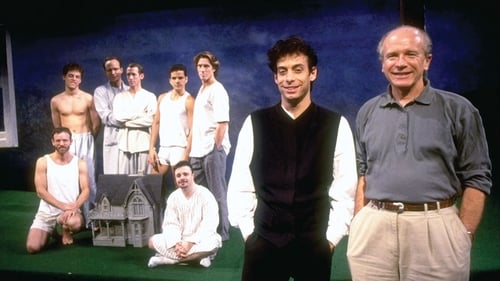
Self
The life of Tony-winning playwright Terrence McNally (Master Class, Ragtime): 60 years of groundbreaking plays and musicals, the struggle for gay rights, addiction and recovery, finding true love, and the relentless pursuit of inspiration.

Self (archive footage)
Though legendary lyricist Howard Ashman died far too young, his impact on Broadway, movies, and the culture at large were incalculable. Told entirely through rare archival footage and interviews with Ashman’s family, friends, associates, and longtime partner Bill Lauch, Howard is an intimate tribute to a once-in-a-generation talent and a rousing celebration of musical storytelling itself.
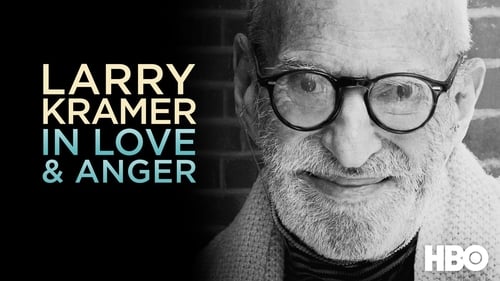
Himself
Un documental sobre el legendario autor, activista y dramaturgo, Larry Kramer. Una de las figuras más importantes y controvertidas de la comunidad homosexual contemporánea estadounidense.
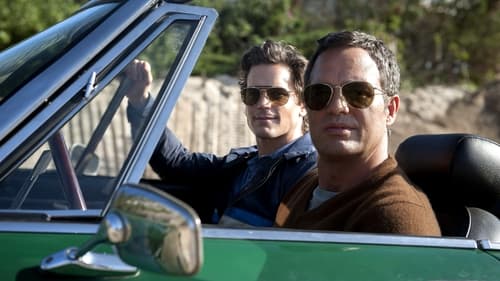
Writer
En la época de mayor virulencia del SIDA, a principios de los años ochenta, se ignoraba casi todo sobre una enfermedad que se calificó como "el cáncer gay". El film cuenta cómo la sociedad estadounidense fue asimilando la expansión de la gran epidemia.
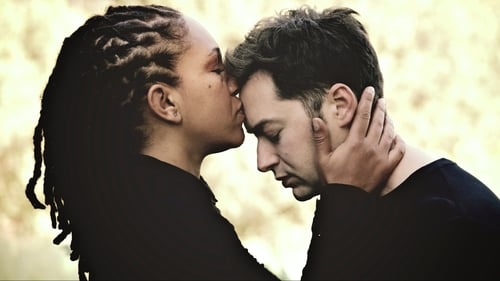
Self
Terrence McNally’s Corpus Christi is a play retelling the Jesus story, with Jesus as a gay man living in the 1950s in Corpus Christi, Texas. This documentary follows the troupe, playwright, and audience around the world on a five-year journey of Terrence McNally’s passion play, where voices of protest and support collide on one of the central issues facing the LGBT community: religion.

Himself
Divertido y conmovedor a partes iguales, este documental producido por HBO comparte con el espectador las historias íntimas de importantes hombres y mujeres del mundo del entretenimiento, los negocios, los deportes y la política estadounidense que hablan sobre su lucha para encontrar su identidad de género y comprender y aceptar su orientación sexual y sobre cómo ello afectó a su vida personal y profesional.

Himself
Narra la historia de dos coaliciones, ACT UP y TAG (Treatment Action Group), cuyo activismo y la innovación convirtió a la enfermedad del SIDA de ser una sentencia de muerte para quien lo tuviera a ser una condición manejable para llevar una vida normal.

The story of the AIDS epidemic from its early, ominous beginnings and the wave of death that followed, through the formation of ACT UP and the arrival of life-prolonging medicines. This program is comprised of interview outtakes from the documentary motion picture VITO, about gay activist and film historian Vito Russo.

Joe Papp, the founder of the New York Shakespeare Festival and, subsequently, The Public Theater—arguably the most important theatre in North America—is profiled in this documentary that neither sanctifies nor vilifies him. He brought us free Shakespeare in the Park, Hair and A Chorus Line, and nurtured many of America’s greatest playwrights, directors and actors. His complex personality and mercurial behavior are much in evidence and spoken of with frankness through interviews with some of America’s most celebrated artists, including Meryl Streep, Christopher Walken, Martin Sheen, Kevin Kline, and James Earl Jones.

Himself
The Emmy Award-nominated 30 Years from Here examines the AIDS pandemic over the past 30 years. Activists and medical experts that share stories include Terrence McNally, Larry Kramer, Marjorie Hill, Frank Spinelli, Jerry Mitchell, and Larry Flick.

Himself
In the aftermath of Stonewall, a newly politicized Vito Russo found his voice as a gay activist and critic of LGBTQ+ representation in the media. He went on to write "The Celluloid Closet", the first book to critique Hollywood's portrayals of gays on screen. During the AIDS crisis in the 1980s, Vito became a passionate advocate for justice via the newly formed ACT UP, before his death in 1990.
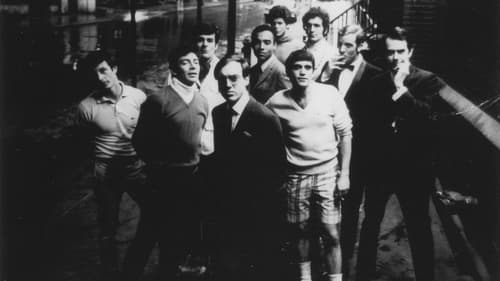
Himself
Before Prop 8, Milk or Will & Grace, before the AIDS epidemic, gay pride parades or the Stonewall uprising, "The Boys in the Band" changed everything. "Making the Boys" explores the drama, struggle and enduring legacy of the first-ever gay play and subsequent Hollywood movie to successfully reach a mainstream audience. Featuring anecdotes from the surviving cast and filmmakers, as well as perspectives by legendary figures from stage and screen, it traces the behind-the-scenes drama and lasting legacy of this cultural milestone.

Himself
Sex Positive explores the life of Richard Berkowitz, a revolutionary gay S&M hustler turned AIDS activist in the 1980s, whose incomparable contribution to the invention of safe sex has never been aptly credited. Mr. Berkowitz emerged from the epicenter of the epidemic demanding a solution to the problem before the outside world would take heed. Now destitute and alone, Mr. Berkowitz tells his story to a world who never wanted to listen.
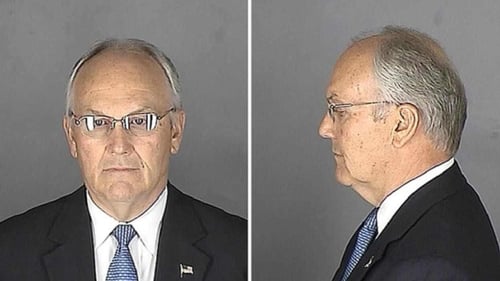
Self
An indictment of closeted politicians who lobby for anti-gay legislation in the US.

Self
Inspired by a collection of personal notebooks, this feature-length director’s cut of the short film by the same name is an experimental documentary on art, AIDS and activism. Following James Wentzy from South Dakota to New York City, the film traces his days from struggling and surviving as an artist to later becoming an AIDS video activist. In showcasing a unique individual through his involvement with the fight against AIDS and his tireless frontline reportage of the crisis, The Books of James is an intimate portrait of a neglected everyman/hero and unearths a time now forgotten.
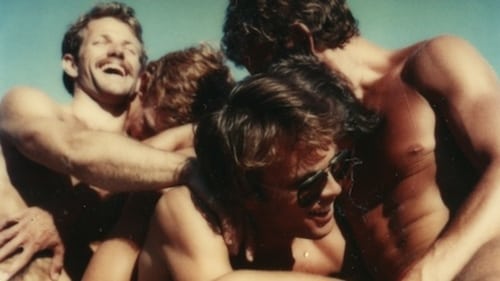
Himself
A chronicle of gay culture in New York during the post-Stonewall, pre-AIDs era. Thirteen men and one woman look back at gay life and sex in Manhattan and Fire Island - from Stonewall (June, 1969) to the first reporting on AIDS (June, 1981). They describe the rapid move from repression to celebration, from the removal of shame to joy, the on-going search for "someone," the freedom before AIDS, the friendships, and brotherhood.

Archival Footage Coordinator
10 years after the release of "Philadelphia," director Jonathan Demme, Tom Hanks, Denzel Washington and others discuss about the making of that film and it's important legacy through the years of being the first mainstream Hollywood film about dealing with the topic of Aids, revealing its impact on culture and society. Cast and crew talk about the inception of the project, the making of it and curious stories about one of the greatest hits of 1993.

Self
This sequel to "Before Stonewall" documents the history of gay and lesbian life from the riots at Stonewall in 1969 to the present. Narrated by Melissa Etheridge, the film explains the work, struggles, victories, and defeats the gay community has weathered to become a vibrant and integral part of North American society.

Himself
In New York City, a distraught activist confronts the mayor with a story of a friend who languished on a cot in an emergency room hallway for nine days, only to die 48 hours after leaving the hospital. In 1988, thousands of activists hold the Food and Drug Administration under siege, demanding speedier drug approval. In 1990 AIDS activists converge on the National Institute of Health, calling for a more equitable clinical trial system and expanded research into new drugs and treatment. Voices From the Front, the first feature-length documentary on AIDS activism in America, makes clear the emotional and political effects of community activism using the voices of those directly engaged. It is a powerful distillation of pictures and words from events organized to change public consciousness, expose the failure of the health care systems, and challenge government inaction and neglect concerning AIDS.

Himself
This film powerfully documents New York City's gay community's response to the AIDS crisis as they are forced to organize themselves after the government's failure to stem the epidemic. Activists who are interviewed include playwrite Larry Kramer, People With AIDS Coalition co-founder Michael Callen (who died of AIDS in 1994), New York filmmaker and journalist Phil Zwickler, as well as representatives from ACT-UP, Queer Nation and the Gay Men's Health Crisis.
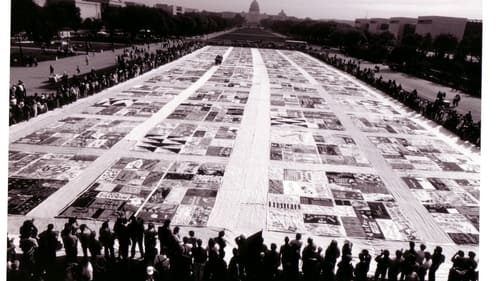
Self (archive footage)
On the eve of 1987's Second National March on Washington for Lesbian and Gay Rights, surviving families and friends of people who have died of AIDS prepare panels to be added to a large-scale memorial quilt project. Drawing from the sea of names memorialized, director Robert Epstein focuses on the lives of six people. Alongside the intimate profiles offered, through news footage and interviews, Epstein puts the AIDS crisis in the larger context of social and government response to the disease.
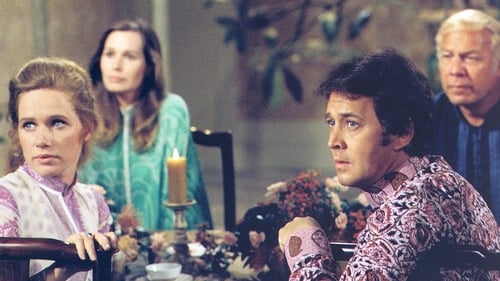
Screenplay
Un grupo de personajes extranjeros, se encuentra en la ciudad de Baskula y tratando de huir de la guerra, consiguen un avión que se espera les lleve hasta Hong Kong. Pero el avión es secuestrado y un accidente mecánico les obligará a aterrizar en lo alto del Himalaya donde, curiosamente, los pasajeros son rescatados y llevados a un sitio paradisíaco, donde no hay enfermedad y donde se puede vivir muchos años en paz y en armonía. El lugar es conocido como Shangri-La… Pero también allí hay alguien que ansía marcharse.
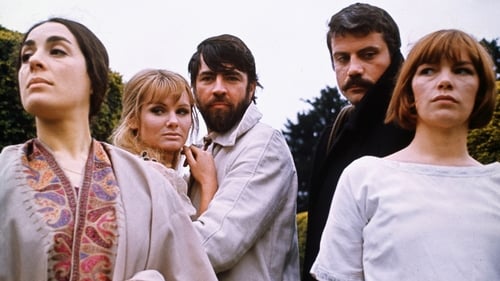
Producer
Gudrum y Úrsula son dos hermanas educadas en la recatada Inglaterra de los años 20. Una es maestra y la otra escultora pero ambas coinciden en que saben muy poco del amor. Por eso cuando emprenden sus tórridas aventuras amorosas con un playboy de mala fama, Rupert, y un oscuro conquistador, Gerald, lo que descubren acerca de sus amantes y de sí mismas resulta mucho más fascinante y peligrosamente arrollador, de lo que hubieran atrevido a imaginar nunca.

Writer
Gudrum y Úrsula son dos hermanas educadas en la recatada Inglaterra de los años 20. Una es maestra y la otra escultora pero ambas coinciden en que saben muy poco del amor. Por eso cuando emprenden sus tórridas aventuras amorosas con un playboy de mala fama, Rupert, y un oscuro conquistador, Gerald, lo que descubren acerca de sus amantes y de sí mismas resulta mucho más fascinante y peligrosamente arrollador, de lo que hubieran atrevido a imaginar nunca.

Associate Producer
Jamie McGregor (Barry Evans) is a virginal sixth-former in suburbia delivering groceries for the local supermarket, but he is more interested in other matters - Mary, Linda, Paula and Caroline. He tries to seduce the girls of his dreams in the swinging sixties.

Additional Dialogue
Jamie McGregor (Barry Evans) is a virginal sixth-former in suburbia delivering groceries for the local supermarket, but he is more interested in other matters - Mary, Linda, Paula and Caroline. He tries to seduce the girls of his dreams in the swinging sixties.

Writer
A dazzlingly mod yet oddly old-fashioned romantic view of heterosexual couples in the swinging youth scene of 1960s London.

















